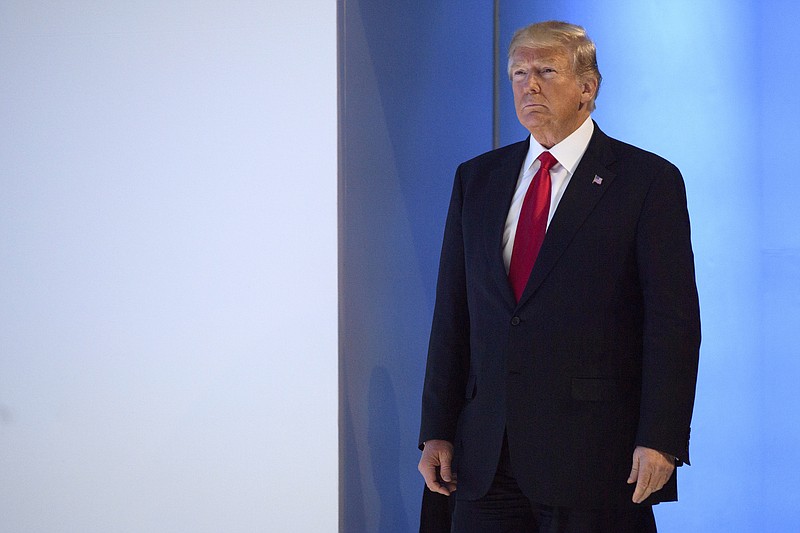They can be hard to spot - let alone take at face value - amid the usual spray of insults and bombast, but every now and then President Donald Trump emits a sensible idea.
Trump offered at least the appearance of such an idea when he strode into the White House briefing room late Wednesday and announced he was open to a multiyear path to citizenship for the so-called Dreamers, about 700,000 immigrants brought to the United States illegally as children and granted protection from deportation by President Barack Obama. His words sent his surprised staff scrambling and heartened Democrats who have been seeking a just solution for those young people.
But the price of the offer became clear Thursday afternoon, when White House officials said that citizenship for the Dreamers, and about 1.1 million other young immigrants who could qualify for the status but didn't apply, would come only as part of a bargain that included an additional $25 billion for border security and a crackdown on legal immigrants, including family members of those already in the United States.
Trump, who canceled the Dreamers' protection in September, has professed his "love" for them, but the real policy is being made by hard-liners in the White House.
In the heat of the struggle over the fate of the Dreamers, what has often been obscured is how the heartless anti-immigration crowd has ominously pushed the broader debate to attack immigration as a whole.
Among hard-core Republican foes of immigration, aided and abetted in the White House by Trump's fiercely anti-immigration senior adviser for policy, Stephen Miller, the goal is not only a crackdown on unauthorized immigrants within the United States or a Great Wall along the Mexican border, but also a sharply reduced number and a more restrictive profile of immigrants in general.
Though American immigration policy has been marked for much of the nation's history by racism and injustice, a fundamental narrative has formed of the United States as a land shaped by waves of creative, hardworking immigrants, and as the great haven for "tempest tossed" refugees from less fortunate lands.
The last two efforts to reform America's tangled immigration policies, with bills in 2007 and 2013, were still based on a faith across party lines that foreigners coming to these shores - at least those coming legally - were good for America. The bills foundered over how to deal with unauthorized immigrants, but various programs intended to bring in talented and diverse immigrants and to let legal immigrants bring in family members continued largely unchallenged.
Until Donald Trump.
While his public statements on immigration have been all over the place, his fundamental hostility to immigrants is obvious, from slogans such as "Buy American, Hire American" to his infamous racist and profane slur against poor Third World nations. In August, he gleefully endorsed a bill sponsored by two anti-immigration Republican senators, Tom Cotton of Arkansas and David Perdue of Georgia, that would reduce legal immigration by about half, in large part by terminating the diversity lottery and curtailing family-based immigration, derisively called "chain migration" in their camp. (As for poor, huddled masses, Miller dismissively noted at a White House briefing that Emma Lazarus' celebrated sonnet was appended to the Statue of Liberty only later.)
There is no question that the millions of people who have crossed into the United States illegally, largely in the 1990s, represent a problem that demands a comprehensive solution. The anti-immigration backlash that Trump tapped is not always racist or xenophobic; to many Americans, mass illegal immigration represents a failure of government in one of its basic duties. It is equally clear that a solution must be a balance between offering many of the unauthorized immigrants and their families - and the Dreamers - a way to legalize their presence, and increasing border security.
None of that changes the fact that immigrants, legal and illegal, supply, and have always supplied, America with the talents, skills, diversity and dreams that have made it what it is. The fact that Silicon Valley has so many foreign-born workers is not evidence of native-born Americans having been crowded out of work, but of America's ability to tap talent from around the world. And with America's birthrate sagging and baby boomers retiring, immigrant labor will be critical to sustain economic growth. Base nativism must not be allowed to undermine the American dream, or its future.
The New York Times
